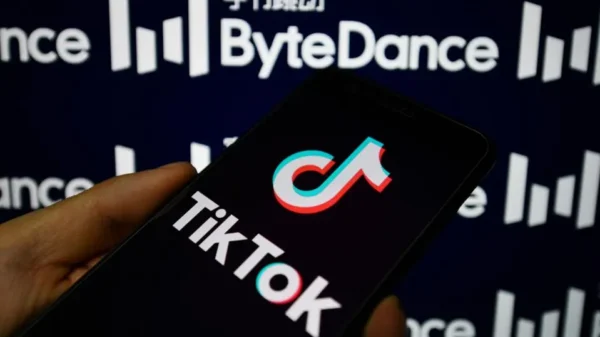When the United States House of Representatives passed the MORE Act earlier this month, America got one step closer to federally legal weed. For cannabis businesses, that means one step closer to accessing banking services, one step closer to filing for business-expense tax deductions and one step closer to interstate trade.
Many American operators also assume this means one step closer to the right to advertise cannabis-related goods and services on social media platforms like Instagram, where many weed-related companies are often banned for posting promotional content. But U.S. firms might be surprised to learn what operators in countries where weed is legal have known for a long time: Instagram’s cannabis restrictions aren’t about the law.
“It comes to keeping our community safe,” says Raki Wane, policy communications manager at Instagram. It hosts many young users, she explains, and platform administrators have a moral obligation to foster an environment where vulnerable users aren’t subjected to cannabis ads. Instagram also restricts alcohol, tobacco and e-cigarette-related content.
Cannabis operators, on the other hand, see the restrictions as extreme and confusing.
Stigma is definitely involved, says Angelo Muscari, co-founder of Ottawa-based Hybrid Pharm, Canada’s first full-service pharmacy with a licence to sell medical cannabis.
“At the end of the day, it’s medicine for our patients, but medical cannabis has been legal since 2001 [in Canada],” he explains. Despite being a licensed pharmacy, Hybrid Pharm’s account has been suspended.
Read more: Imagining an inclusive system for Canada’s cannabis patients
Read more: If Canada wants legal weed to succeed, it should ease marketing restrictions

Co-founder Angelo Muscari (left) and CEO Rahim Dhalla run Hybrid Pharm, a licensed pharmacy and cannabis seller in Ottawa, Canada. Submitted photo
For years companies have struggled to navigate cannabis content restrictions on Instagram, which many view as an indispensable platform to reach consumers. Instagram’s community guidelines state that it “doesn’t allow people or organizations to use the platform to advertise or sell marijuana, regardless of the seller’s state or country.” In practice, however, Instagram’s censorship is not limited strictly to posts that explicitly mention a product is for sale — Muscari, for example, says he’s received warnings for cannabis-related posts over two years old.
The resulting environment is one where cannabis companies make Instagram profiles thinking they can navigate the guidelines, only to have their profiles deleted, suspended or otherwise censored after weeks or years of audience building.
Sometimes it feels like they’re walking on eggshells, says Olga Lopez, senior digital marketing manager at California-based edible company PLUS.
“You can never truly predict what piece of content, language or even hashtag Instagram might not allow,” she says.
Instagram uses a combination of AI and human moderators to police the platform, which in combination with its loosely defined policy is likely responsible for the unpredictable nature of Instagram’s weed censorship. Instagram also allows users to flag content, bringing it to a moderator’s attention as a potential violation.
Artificial intelligence has a tendency to over-censor, as exemplified by YouTube’s retreat to more human moderation this September, while human error sacrifices some level of consistency. Furthermore, Instagram is hesitant to provide more guidance on the restrictions than what’s listed on its site. When asked whether cannabis-themed containers, notebooks or stickers could be sold on Instagram, for example, Wane told Mugglehead it was “hard to say,” without seeing specific examples.
View this post on Instagram
Of course, cannabis companies aren’t able to run each piece of content by an Instagram employee for review. Instead, they guess at what content violates the policies and base decisions on hearsay. Muscari no longer posts photos of the plant on Hybrid Pharm’s account, nor uses the hashtag #thc.
Lopez, on the other hand, focuses on avoiding promotional discounts or anything explicitly promoting the purchase of products. “We won’t even share posts from our retail partners if the language around a promotion is somewhat risky,” she says.
Getting accounts reinstated can come down to money and connections, operators say
Goldleaf, an Ohio-based company that sells stationery and artwork for cannabis enthusiasts, has dealt with a series of content warnings from Instagram despite the fact that it doesn’t sell anything for consumption. As of writing, its account has been “shadow banned,” which means that Instagram allows the profile to remain visible, but alters its algorithm so Goldleaf’s content isn’t shown in most followers’ news feeds or other discoverable places like the explore feed.
For a brand like Goldleaf, losing access to social media can be devastating. Cannabis accessory companies often rely on web sales to make a profit, a reality that only became truer once shelter-in-place restrictions had customers switching to online shopping. In the U.S., online sales jumped over 30 per cent in the first six months of 2020 compared to the first six months of 2019 according to the U.S. Commerce Department. Goldleaf, after having difficulties on Instagram and Amazon this year, finds themselves making only 20 per cent of last year’s profits.

Should minors be able to stumble across cannabis-related content? Instagram doesn’t seem to think so. Qwest Cannabis’s Kalifornia cultivar. Photo by Nick Laba
Founder Charles McElroy says that when he’s been able to reach an Instagram employee in its ads department, he’s had some help restoring advertising capabilities. However, its AI inevitably begins censoring his company’s content again when the software updates.
“We go through that dance so often it feels like it’s not even worth fighting it,” McElroy says.
The fact that Instagram employees can reverse censorship on accounts creates its own problems. McElroy says he’s heard rumors that companies have paid US$20,000–$40,000 to Instagram employees to reinstate deleted accounts — a claim lent credibility by similar reports of influencers paying for special treatment. But Instagram says these actions would be a plain violation of company policy.
Beyond money, industry connections can pull a lot of weight. Marketing manager Lopez says that PLUS worked through their “collective networks to get connected to someone at Instagram,” when they couldn’t find help through formal channels.
Small businesses without the resources, connections or cash feel they’re at a disadvantage.
“There seems to be a multi-tiered hierarchy going on,” says Dina Reudel, who manages social media for California dispensary Hi Fidelity. The store’s Instagram account has been deleted twice by the platform, and Reudel says they’ve never been able to get help or further guidance from an Instagram employee.
“Big accounts seem to be able to post pictures of weed, use cannabis words and even say that they’re having specials, and not get flagged for it,” she says. “And smaller accounts can’t.”
The conditions on Instagram, though some of the most frustrating to understand, aren’t drastically different from other social media sites. Google ads categorizes cannabis under the umbrella of “dangerous products or services” prohibited entirely, while Amazon defers to federal cannabis laws including advertising restrictions in Canada. On the other hand, Twitter doesn’t censor weed content, which has led to marketers begrudgingly focusing their social media strategy on the text-heavy website.
Read more: ‘The problem was the tone’: Delta 9 responds to Twitter reviewer roast
In future, cannabis operators worldwide hope to see an easing of restrictions. However, such a change will likely require a united effort from companies big and small to put pressure on the oligarchic platforms.
“We can try in the new year — not to make a stink — but to really put our foot down and say this is important and these are the reasons why,” suggests Muscari. “With something that’s now a legal product, it’s in all our better interest to really fight this.”
For now, Instagram’s moralized pot policy won’t be easing with changes to cannabis law.
Top image: An eighth of Canopy’s Houseplant Indica — a legal product in Canada — comes with a lot of packaging. Any cannabis content is subject to enforcement on Instagram, which says its policy is in part to protect minors on the all-ages platform. Photo by Nick Laba














